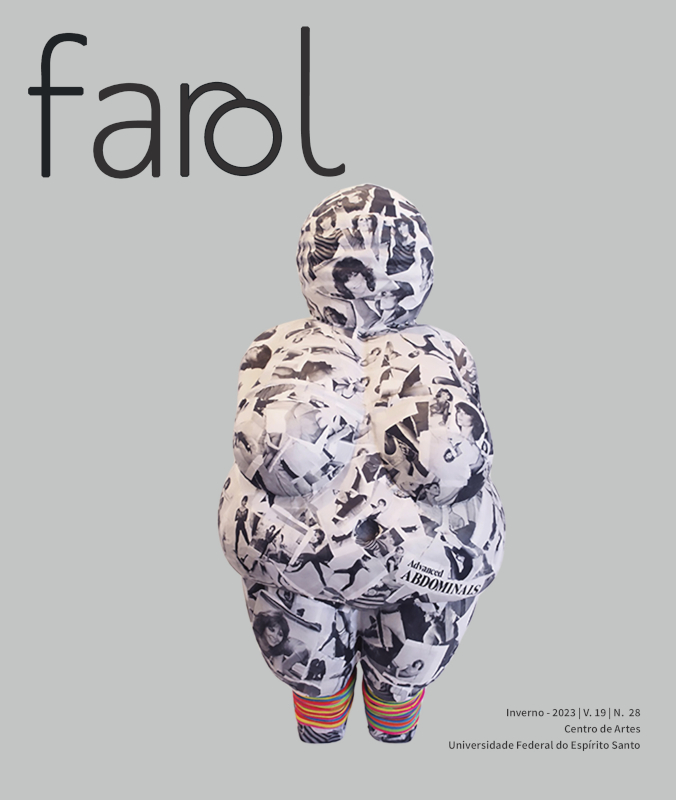Curation décoloniale
artistes noirs à Espírito Santo
DOI :
https://doi.org/10.47456/rf.v19i28.43447Mots-clés :
curadoria, arte contemporânea, artistas negras, produção artísticaRésumé
The history of art was constructed with exclusive criteria that make issues of gender and race invisible. The arts, like countless other areas, are oppressive and legitimize white, European, middle-class and, above all, male artists. The movement driven by female artists from the 1960s and 1970s continues to unfold today, where it is still necessary to claim and value female artistic expressions. In this way, the selection of productions by black artists in Espirito Santo students, mothers, teachers, artists and women aims to produce and disseminate the arts. The productions shared in this article dialogue with each other, in a diversity of artistic languages, techniques and research in the artistic field. There are women, not only behind the work being represented, but women who represent themselves and present strength and sensitivity through art. The black woman is evident as a protagonist in art, affirming her presence and her struggles for equality and rights.
Références
AQUINO, R. Arte participativa, mediação cultural e práticas colaborativas:perspectivas para uma curadoria expandida. Repertório, 90-103. 2016.
AZEVEDO, Anna. Instituições Culturais. Curadoria é poder. Goethe-Institut Brasil. Data de acesso 05/10/2022.
CASTANHO, Maria Eugênia. Arte-Educação e intelectualidade da arte. In. Dissertação (Mestrado). Faculdade de Educação. PUC- Campinas, SP. 1982. CHIARELLI, Tadeu. Arte internacional brasileira. São Paulo: Lemos 1999. 311 p. il. Color.
CONDURU, Roberto. Arte Afro-Brasileira. Belo Horizonte: C/Arte, 2007
FANON, Frantz. Pele Negra, Máscaras Brancas. Salvador: EDUFBA, 2008.
FANON, Frantz. Os Condenados da Terra. Lisboa: Editora Ulisseia ,1961.
HOOKS, Bell. Olhares negros: raça e representação. São Paulo: Elefante, 2019.
KILOMBA, Grada. Memórias da plantação: episódios de racismo cotidiano. Rio de Janeiro: Cobogó, 2019.
MBEMBE, A. Necropolítica: biopoder, soberania, estado de exceção, política da morte. Tradução Renata Santini. São Paulo: N-1 edições, 2018.
QUIJANO, Aníbal. Colonialidad del poder y clasificación social. Journal of World System Research, v. VI, n. 2, Summer /Fall 2000, p. 342-386.
SANTOS, Neuza Souza. Tornar-se Negro: ou as vicissitudes da identidade do negro em Ascenção Social. Rio de Janeiro: Graal, 1983.
SANTOS, Renata Aparecida Felinto dos. A construção da identidade afrodescendente por meio das artes visuais contemporâneas: estudos de produções e poéticas. Tese (Doutorado em Artes). Instituto de Artes – UNESP, São Paulo, 2016.
Téléchargements
Publiée
Numéro
Rubrique
Licence
Les auteurs des œuvres soumises à Revista Farol autorisent leur publication sur des supports physiques et électroniques, uniquement à des fins académiques, et peuvent être reproduites à condition de citer la source. Ils attestent de leur originalité, de leur paternité et de leur originalité.





